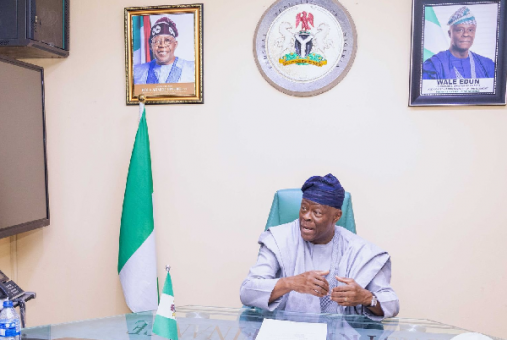The Federal Government has mandated Nigeria’s Economic Management Team (EMT) to craft a fresh economic strategy aimed at achieving a medium-term growth target of seven percent, signaling a renewed focus on broad-based, inclusive development.
At a high-level meeting held at the Ministry of Finance on Monday, the Minister of Finance and Coordinating Minister of the Economy, Wale Edun, presided over discussions outlining the country’s next economic direction. The session addressed recent policy reforms, macroeconomic trends, and strategies intended to boost investor confidence and enhance public welfare.
According to an official communiqué, the EMT convened to fine-tune a comprehensive economic blueprint that will soon be presented to President Bola Ahmed Tinubu. This plan is expected to build upon existing economic stabilization measures and pivot towards sustainable growth that impacts everyday Nigerians.
Key aspects of the strategy include improving Nigeria’s sovereign credit ratings, thereby reducing borrowing costs, and unlocking investments through sector-specific incentives and disciplined fiscal management. EMT subcommittees were tasked with crafting both macroeconomic and sectoral policies to drive economic expansion.
The team also explored innovative avenues for infrastructure financing, including the potential use of pension fund assets. Enhancing daily oil production, lowering exploration costs, and attracting new investment both local and foreign are also among the administration’s top economic goals.

Minister Edun emphasized the importance of using accurate data and evidence-based approaches in shaping future policies. He also called for clearer communication of the government’s economic plans to ensure broad stakeholder alignment.
In their deliberations, the EMT noted advancements in the telecoms sector and the catalytic impact of digital technologies on other areas of the economy, particularly agriculture. Increased productivity and improved income levels in rural areas were highlighted as potential outcomes of technology-driven reforms.
The Minister pointed to several macroeconomic indicators that suggest positive momentum under the current administration, including a reduced budget deficit and increased government revenues. Nigeria’s improved credit rating from international agencies was also cited as a sign of restored global confidence.
“Recent international assessments confirm that our policies are yielding results,” Edun said, referencing engagements during the IMF and World Bank Spring Meetings held in Washington, D.C.
He commended the Central Bank of Nigeria for stabilizing the country’s foreign exchange environment. A more transparent exchange rate policy and growing FX reserves reported to have hit $23 billion in 2024 and have significantly narrowed the exchange rate gap from 65% in 2023 to just 1% within a year.
However, the Minister acknowledged ongoing global volatility and domestic fiscal constraints, including fluctuating oil prices. These challenges, he said, underscore the urgency of spurring private sector-led growth and job creation to accommodate Nigeria’s expanding labor force.
The meeting also discussed improving the effectiveness of public expenditure. Emphasis was placed on refining poverty metrics to enable targeted support and ensure interventions reach the most vulnerable populations.
The economic roadmap currently in development is expected to serve as the administration’s flagship strategy for fostering inclusive, long-term economic progress and boosting investor and citizen confidence alike.




